Conveners
FAIR Data Management
- Pedro Ferreira (CERN)
-
Mr Lars Holm Nielsen (CERN)12/03/2024, 14:00Technology & ResearchPresentation
The presentation will give an overview over existing and upcoming FAIR-enabling features in Zenodo and InvenioRDM. Zenodo has through the collaboration with Plazi built up the Biodiversity Literature Repository as a prime example of FAIR data management with domain specific metadata in a general-purpose repository. Zenodo will further soon launch a Zenodo-community together with the European...
Go to contribution page -
Mr Stefan Jakobsson (Swedish National Dataservice), Richard Freitag12/03/2024, 14:15User Voice: Innovative Applications, Data Science Environments & Open DataPresentation
FAIR data management has come a long way since its first publication of guiding principles for scientific data management and stewardship in 2016. Many universities and funding bodies have adopted FAIR as a de facto standard for their data management processes, and many publicly available systems have been established to support scientists in their goal of achieving compliance with the...
Go to contribution page -
Mr Taras Zhyhulin (Sano Centre for Computational Medicine)12/03/2024, 14:30User Voice: Innovative Applications, Data Science Environments & Open DataPresentation
Scientific advancements increasingly rely on complex computational models fueled by diverse datasets. However, the collaborative sharing of these datasets poses significant challenges, hindering progress of research within scientific communities. This paper addresses the pivotal issue of efficient data sharing among scientists engaged in advanced simulations and computational modeling. ...
Go to contribution page -
Pablo Saiz (CERN)12/03/2024, 14:45Technology & ResearchPresentation
The goal of CERN Open Data is to make experiment data available to the general public in a way that can be easily used and to preserved for the long-term. This comes with a set of challenges:
Go to contribution page
* The most important is to make sure that the data follows the FAIR principles: it should be Findable, Accessible, Interoperable, and Reusable.
* That also includes the the long preservation of the... -
Pawel Kruczkiewicz (AGH University of Krakow (PL))12/03/2024, 15:00User Voice: Innovative Applications, Data Science Environments & Open DataPresentation
CERN produces, analyzes and archives vast amounts of data. To conduct an analysis a lot of software in the form of scripts and code is produced. As the time goes by and new approaches supersede the old ones, the aforementioned artifacts may become hard to understand and setting up and running them can be challenging. This may be a crucial concern when trying to publish the data in an open...
Go to contribution page -
